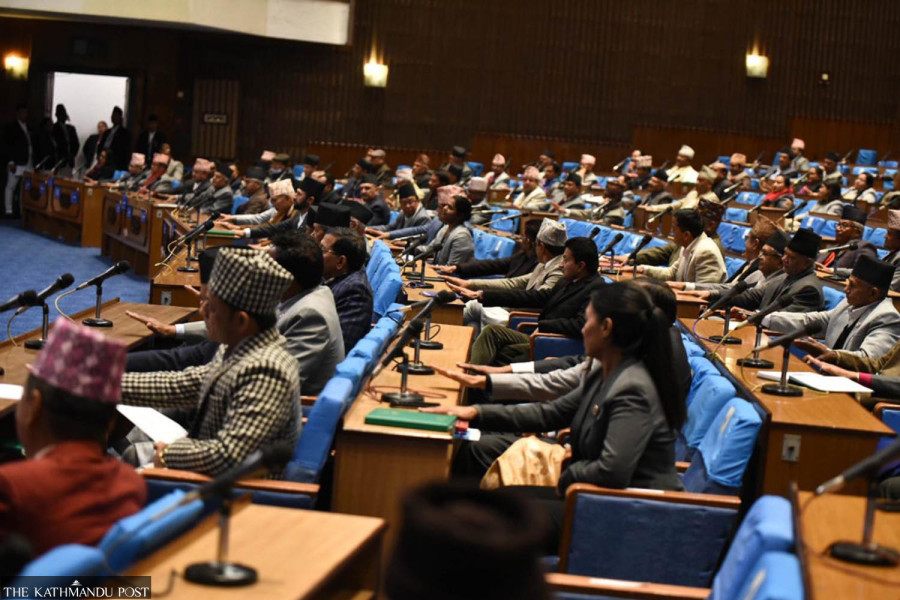Editorial
Uncommitted committees
The elected Parliament should be the first agency to offer much-needed hope to the people.
The country is plagued by multiple problems. Almost every sector has faced setbacks. The economy has failed to gather momentum ever since the Covid pandemic. The confidence of the private sector has taken a nosedive. Market activities have seen an unprecedented slump. Unemployment and youth exodus show no sign of slowing. Desperate folks taking to the street seeking justice has become a common sight. Those cheated by cooperatives, microfinance companies, exploitative individual lenders and foreign employment agencies often resort to peaceful demonstrations to draw the attention of the authorities concerned. None of these issues has of late been properly addressed.
The government’s concerned ministries and the departments are the ones to address these problems first. Parliament is the other body to take up such issues, delve deep into public concerns and give policy guidelines to executive agencies to resolve the issues. There are a dozen thematic committees in the two chambers of the federal Parliament to deal with such problems. The committees’ jurisdiction has been defined along their thematic subjects and areas. For instance, there is a Finance Committee to oversee economic and financial matters, Public Accounts Committee to look after issues related to the government and other expenditures involving state coffers, and the State Affairs Committee to keep an eye on security and governance related issues. Likewise, there are separate committees to study labour and migration issues, health and education matters, and issues related to foreign relations and international affairs, among others.
In a democratic system, parliamentary committees are powerful bodies to study complex matters and suggest ways to resolve them. Elected representatives can seek documents from state agencies, call and grill government officials to make the matters clear. Therefore, House committees’ decisions, their findings and recommendations hold special significance. But over a year after the federal parliament commenced its work, none of the committees in this time has done any important study nor come up with solutions to resolve pressing issues. This time, the Parliament showed a disappointing tendency from the beginning. It took four months to form 10 thematic committees under the House of Representatives and four more to elect their heads. Still, one of the joint committees is yet to get its shape while the hearing committee, another joint panel, is still without its elected chair.
In December last year, multiple House committees made the headlines but for a wrong reason. As the Ncell buyout case courted controversy, multiple parliamentary panels started investigations into the matter. That resulted in disputes between House panels. Even committee chairs were engaged in a blame game for infringing on each other’s jurisdiction. The bodies that are expected to resolve complex issues and give justice to the people were creating complications themselves. As a result, the Parliament has failed to do anything substantive in the past one year.
After a waste of a year, Speaker Dev Raj Ghimire on Sunday called a meeting with chairs of the thematic committees to instruct them not to engage in jurisdictional disputes and rather focus on their defined duties. The Speaker has taken the right initiative. But it’s too little too late. As public trust in state organs is steadily eroding, the elected Parliament should be the first agency to take serious initiatives to offer some hope. The parliamentary leadership, the government, which should give the business to the legislature, and mainly the leaders of the major political forces should undertake a serious homework and review to make the remaining four years of the Parliament more productive. Otherwise, a business-as-usual approach could lead to a crisis in governance and decimate public trust in state institutions.




 10.12°C Kathmandu
10.12°C Kathmandu














